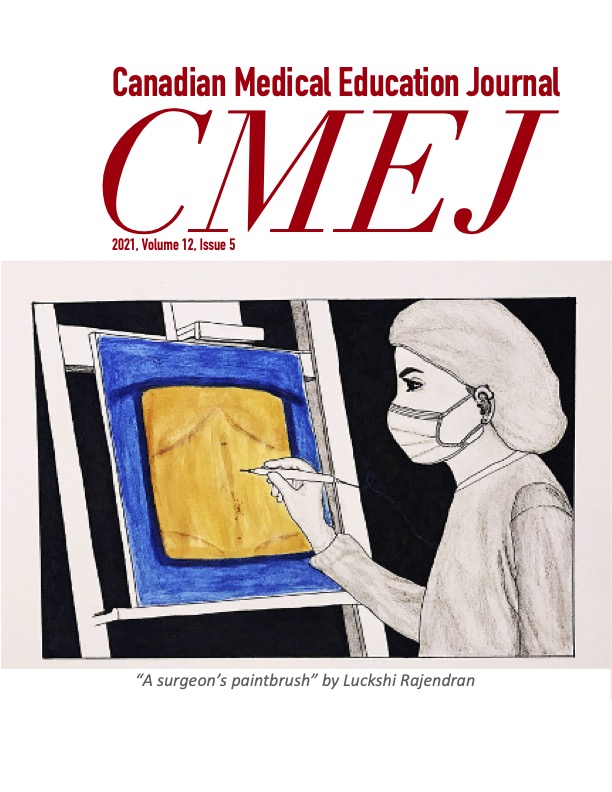Developmental Evaluation: six ways to get a grip on the potential of education scholarship to serve innovation
DOI:
https://doi.org/10.36834/cmej.71640Abstract
In March 2020, COVID-19 challenged health and educational systems across the country. The rapid reallocation of resources to ensure public safety had taken priority over educational obligations. Healthcare students were removed from clinical environments as their learning came to a grinding halt. While academic institutions were pivoting and transforming teaching and learning experiences, students responded to the pandemic with innovation, attending to gaps in patient care. As educators, we must understand how we can further support students and faculty to unleash innovative thinking during a crisis. To begin to address this educational need, academic institutions now have an opportunity to broaden the practice of education scholarship in accordance with best practices to nurture innovation and innovative thinking. What framework can aid us in this endeavor? In times of instability, Developmental Evaluation is an approach that can support the implementation of innovations within medical education. Using an example of an innovation in medical education, we offer six practical tips to begin to use Developmental Evaluation to support and enable learners and faculty in the creation of innovations and contribute to a broader definition of education scholarship.
Downloads
Downloads
Published
Versions
- 2021-11-02 (2)
- 2021-11-02 (1)
How to Cite
Issue
Section
License
Copyright (c) 2021 Kathryn Parker, Allia Karim, Risa Freeman

This work is licensed under a Creative Commons Attribution-NonCommercial-NoDerivatives 4.0 International License.
Submission of an original manuscript to the Canadian Medical Education Journal will be taken to mean that it represents original work not previously published, that it is not being considered elsewhere for publication. If accepted for publication, it will be published online and it will not be published elsewhere in the same form, for commercial purposes, in any language, without the consent of the publisher.
Authors who publish in the Canadian Medical Education Journal agree to release their articles under the Creative Commons Attribution-Noncommercial-No Derivative Works 4.0 Canada Licence. This licence allows anyone to copy and distribute the article for non-commercial purposes provided that appropriate attribution is given. For details of the rights an author grants users of their work, please see the licence summary and the full licence.











